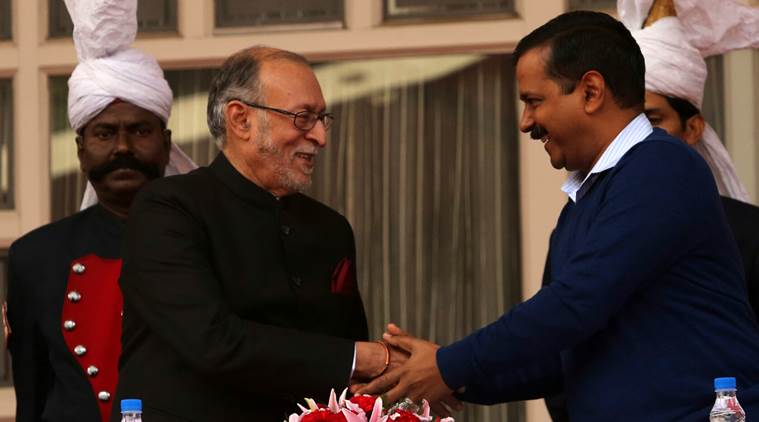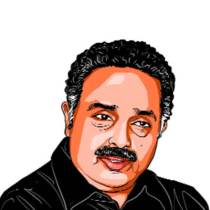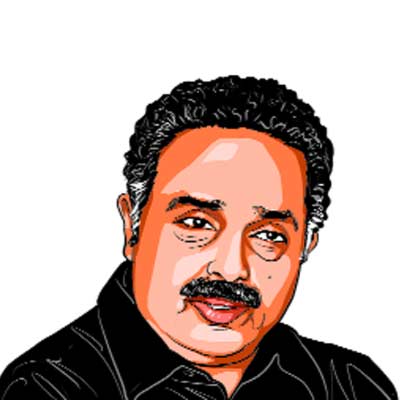A Needless Controversy
Supreme Court order makes it clear ‘services’ fall under Delhi government, not LG

The SC has clearly and categorically said that the LG has absolute powers in dealing with the three reserved subjects and nothing else.
The five-judge constitution bench of the Supreme Court (SC) has settled the law on the jurisdictional issue between the elected government in Delhi and the Lt Governor (LG). Therefore, any attempt to suggest that the judgment is a semi-final of sorts, and the final will be the verdict of a smaller bench which may deal with specific issues, is motivated and has the effect of subverting the judgment of the constitution bench.
Article 141 of the Constitution says that the law declared by the SC shall be binding on all courts within the territory of India. Article 144 says that all authorities, civil and judicial, in the territory of India shall act in aid of the SC. No one can argue that Article 141 speaks only about courts and not the government. The law declared by SC is binding on all authorities in the country. So, the law declared by the constitution bench on the jurisdiction of the Delhi government is binding on the Union as well as the Delhi government. Similarly, the direction going from Article 144 is that all authorities shall act in aid of the SC. In other words, the Constitution requires the authorities to so act as to implement or enforce the apex court’s judgments and directions and not to create hurdles in its way.
The contentious issues in the Delhi case were: One, the powers and jurisdiction of the elected government vis-à-vis the LG, and two, the extent of the power of the LG to differ with the elected government on issues and refer them to the President.
The SC has clearly and categorically said that the executive powers in respect of all matters in the state list as well as the concurrent list — except police, land and public order — vest absolutely in the elected government, which does not have to seek the concurrence of the LG. At the same time, the LG has absolute powers in dealing with the three reserved subjects and nothing else.
Two points need to be made here. First, if “services” were to be retained under the LG, the SC would have endorsed the decision of the Delhi High Court in this regard. Second, the executive powers of the council of ministers include the power to post and transfer the officials working under the government. If the official is not performing well, the government should have the power to transfer him. Similarly, the government should possess the power to choose competent officers for specific positions. These are normal things done by any government. When the Delhi High Court had held that “services” was not under the elected government of Delhi, the LG, through an executive order, usurped the powers of transferring and posting officials. Now that the SC has held that the elected government has all the powers to deal with all the matters other than police, land and public order, as a natural consequence, the power of transferring and posting is restored to the elected government.
It is a fallacious argument that an order of the smaller bench of the SC specifically annulling the notifications/orders of the Union government and LG is necessary before “services” is handed over to the elected government. As a matter of fact, with the judgment of the constitution bench, those notifications/orders stand annulled. The court has clearly said that the Centre has no executive powers to issue a notification to amend the legislative list in the absence of a law made by Parliament. Thus, the notifications issued by these authorities are invalid and have no force of law.
A law declared by the SC takes effect as soon as it is delivered. All authorities are constitutionally bound to enforce it. Whether “services” should be transferred to elected government or to be retained by LG is a needless controversy. “Services” stand restored to the elected government. Articles 141 and 144 enjoin all authorities to enforce the law declared by the Supreme Court. Any controversy on this score gives rise to serious constitutional problems.
The writer is former secretary-general, Lok Sabha
For all the latest Opinion News, download Indian Express App
More From P D T Achary
- Responsibility without powerThat the government in Delhi is elected yet circumscribed points to a constitutional anomaly. Apex court should correct it...
- Rules Against The LawWhy the Centre’s notification against cattle slaughter is controversial..
- The LoP ExcuseIn the Lokpal delay, absence of a leader of opposition is a red herring..








































No hay comentarios:
Publicar un comentario